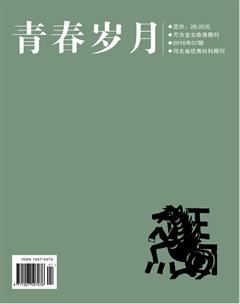宋词苏轼《念奴娇·赤壁怀古》各种英译版本比较
杨红丽
【摘要】苏轼是北宋著名词人,他的词在中国词史上有着很重要的地位。他的《念奴娇·赤壁怀古》是一首久负盛名的作品,这首词节奏鲜明,气势磅礴,让人读起来心潮澎湃,很容易在读者头脑中形成壮丽的画面。本文试图通过对《念奴娇·赤壁怀古》几个版本的英译对比赏析,来讨论研究古诗词翻译的特点,从而提高鉴赏和翻译古诗词的能力。
【关键词】豪放派;鉴赏;古诗词
一、各种版本译文及评析
原文:大江东去,浪淘尽,千古风流人物。故垒西边,人道是、三国周郎赤壁。乱石穿空,惊涛拍岸,卷起千堆雪。江山如画,一时多少豪杰!遥想公瑾当年,小乔初嫁了,雄姿英发。羽扇纶巾,谈笑间、樯橹灰飞烟灭。故国神游,多情应笑我,早生华发。人生如梦,一尊还酹江月。
下面,我们来鉴赏一下各翻译家的译本:
1、徐忠杰
译文:Niannujiao
At the bluffs on the Yangzi: a reminiscence
This river has eer swept its way, eastward bound.
It leaves, in memory, men with victory crowned.
To the west of the old ramparts, people say,
Are the Yangzi Bluffs where Zhou Yu won the day.
High into the air, rocks, shapeless, jagged, soar.
Frightful turbulent waves crash the craggy shore—
With such impact on the rocks they themselves throw—
That foam appears as a thousand heaps of snow.
Picturesque rivers and mountains of our land!
How many heroes are involved and how grand!
When Zhou married Xiao Qiao, dashing he must have been.
Manly, spirited, of a heroic mien.
A feather fan in hand; a kerchief on crown.
With little effort, he brought the strongest foe down.
If mawkish oer past heroes I prove to be,
……
評析:徐忠杰在翻译中国古典诗词时,很注重韵律。脚韵十分工整,另外还使用了倒装、音节省略等手法,译词读起来有较强的节奏感。但仍有不足之处,例如:
(1)把“大江”简单译成“This river”,似乎显得功夫不足,不如“the mighty river”(杨译)和“The Great River”(许译、朱译)显得大气。
(2)将“千古风流人物”译成“men with victory crowned”(获得了很多胜利的人),不能让人感觉出原文的韵味。“风流”通常指对一个时代有很大影响的人物。所以,徐译有待改进。
2、许渊冲
译文:Tune:” Charm of a Maiden Singer”
Memories of the Past at Red Cliff
The Great River eastwards flows,
With its waves are gone all those
Gallant heroes of bygone years.
West of the ancient fortress appears
The Red Cliff. Here General Zhou won his early fame
When the Three Kingdoms were all in flame.
Jagged rocks tower in the air,
Swashing waves beat on the shore,
Rolling up a thousand heaps of snow.
To match the hills and the river so fair,
How many heroes brave of yore
Made a great show!
I fancy General Zhou at the height
Of his success, with a plume fan in hand,
In a silk hood, so brave and bright,
Laughing and jesting with his bride so fair,
While enemy ships were destroyed as planned
Like shadowy castles in the air.
Should their souls revisit this land,
Sentimental, his wife would laugh to say,
Younger than they, I have my hair all turned gray.
Life is but like a passing dream, …
评析:许译比较接近原文风格,用詞精练,并且采用了浪漫主义的译法。但有两点值得讨论:
(1)将“多情”理解为“小乔笑周瑜”的意思,但根据原词的意思,应理解为“苏轼自己笑自己”更符合作者本意,即作者要表达自己壮志未酬的万千感慨。
(2)用直译“Laughing and jesting with his bride so fair”来表达“谈笑间”,又“同美丽的新娘在一起谈笑”不够准确。因为“谈笑间”本意是毫不费力就取胜之意。当时的背景是曹操率20余万大军南下,大敌当前,若说此时的周瑜还有闲情逸致同美丽的新娘在一起谈笑风生,难免让人贻笑大方了。
二、总结
通过将苏轼这首词两个英译文本的对比,我们发现在古诗词的英译中有以下几点值得注意:
1、作者的详细知识背景。充分理解作者生活的朝代,作者的经历、理想及其思想,才能完全掌握其作品中透露出的思想感情。
2、平时要多积累一些古代文化常识、典故及文学知识。翻译古诗词贵在能够将这些文化常识加以串连和联想想象。不能发挥想象的自觉意识就不能充分表达作者的写作意图。
3、需字斟句酌。诗词往往是字字千斤,很大程度上凝练了作者的思想感情。对此,翻译时要逐字推敲,反复修改,才能翻译出好的作品。
【参考文献】
[1] 戴玉霞, 杨跃飞. 鸿踏雪泥诗风慕禅意(二)——苏轼《念奴娇.赤壁怀古》评析[J]. 大家, 2010(04).
[2] 刘宓庆. 翻译的风格论[J]. 外国语, 1990,(1):1-5.
[3] 刘宓庆. 文化翻译论纲[M]. 北京:中国对外翻译出版公司, 2007.
[4] 许渊冲. 宋词三百首:汉英对照[M]. 北京:中国对外翻译出版公司, 2008.
[5] 许渊冲(选择). 最爱唐宋词[M]. 北京:中国对外翻译出版公司, 2006:9-97.

